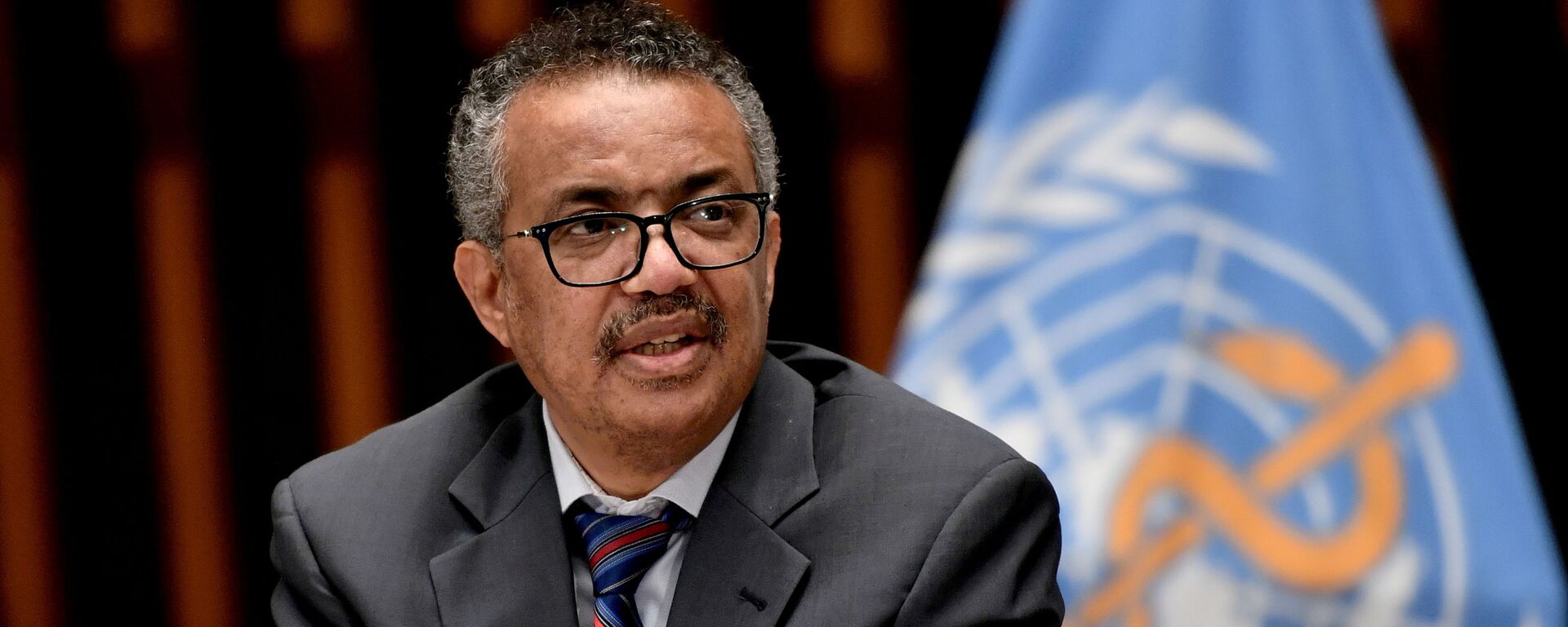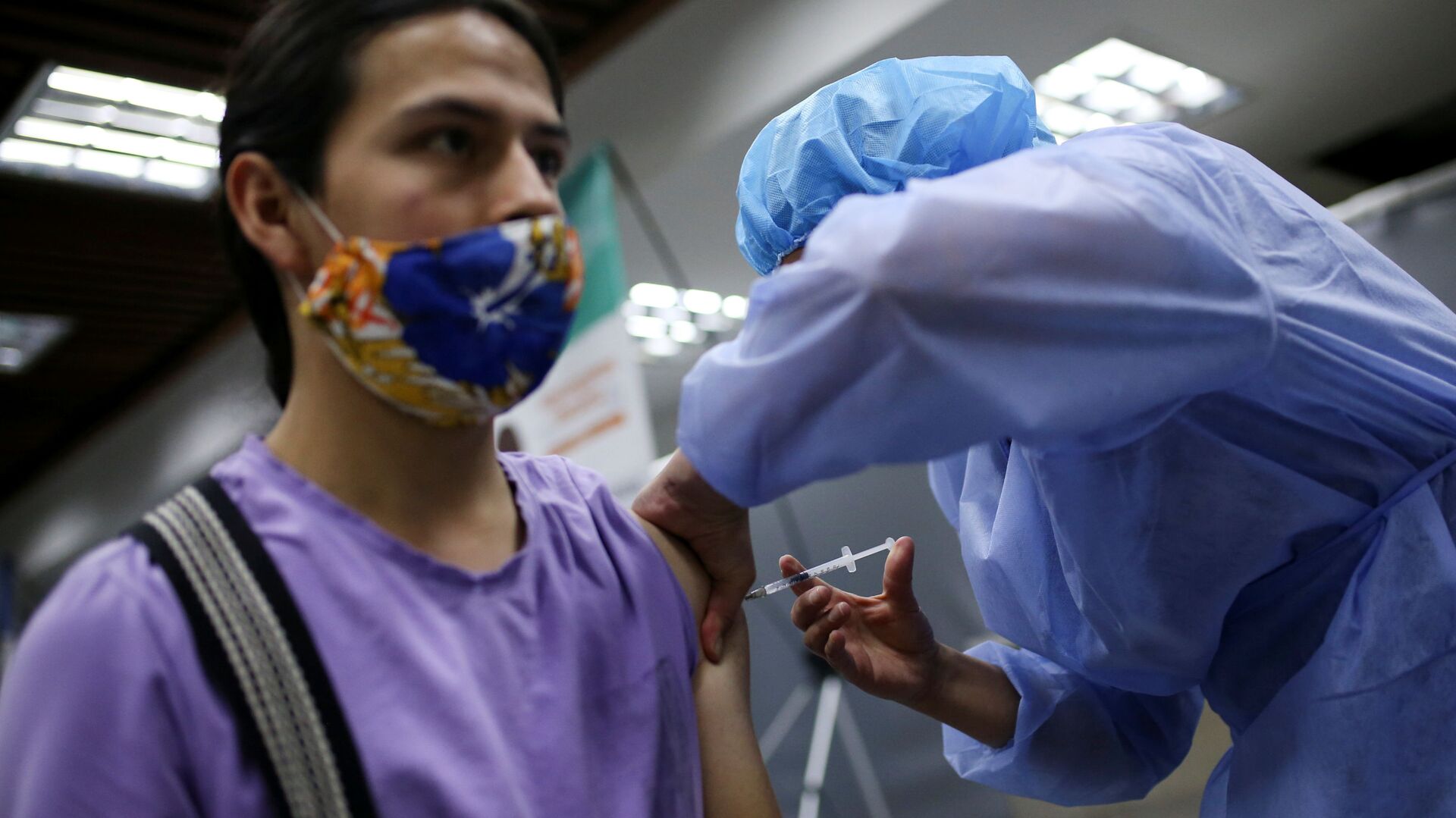https://sputnikglobe.com/20211206/oxford-astrazeneca-vaccine-developer-warns-of-possibly-more-lethal-future-pandemics-1091297117.html
Oxford-AstraZeneca Vaccine Developer Warns of Possibly More Lethal Future Pandemics
Oxford-AstraZeneca Vaccine Developer Warns of Possibly More Lethal Future Pandemics
Sputnik International
Numerous medical experts have been warning since the start of the pandemic that the COVID-19 pathogen won't be the last virus to trigger a global disease... 06.12.2021, Sputnik International
2021-12-06T19:20+0000
2021-12-06T19:20+0000
2021-12-06T19:20+0000
pandemic
world
covid-19
https://cdn1.img.sputnikglobe.com/img/07e5/09/01/1083770462_0:161:3071:1888_1920x0_80_0_0_dc9e201a2d509e86872cb134c64fee2c.jpg
Professor Sarah Gilbert, one of the scientists behind the development of the Oxford-AstraZeneca vaccine against coronavirus, has warned that in the future humanity may face viruses even more dangerous than SARS-CoV-2 that could trigger pandemics. She stressed that governments must be ready for such threats in the future.Gilbert warned against complacency and insisted that the experience and knowledge gained during the coronavirus pandemic "not be lost". She cautioned that once the pandemic is over, the development of vaccines and vaccine technologies might lose priority and with it so much needed funding.The coronavirus pandemic has already claimed the lives of 5 million people. Despite not being as deadly as some viruses, its virulence and negative impact on the elderly population and those with chronic diseases have ramped up its death toll.Less than a year following the start of the pandemic, the first vaccines were introduced that protected against complications and contracting the virus in most cases, with the first registered one being the Russian jab Sputnik V. Several other vaccines followed in its footsteps, including the one developed by Oxford University scientists such as Sarah Gilbert, and private companies like AstraZeneca, Pfizer, and Moderna.Despite most governments offering the vaccination to their citizens for free, only a few regions have reached levels of herd immunity close to 80%. While some countries lack a sufficient number of jabs, others suffer from widespread vaccine scepticism.
https://sputnikglobe.com/20211201/first-meeting-of-who-body-to-discuss-new-pandemics-treaty-to-be-held-on-1-march-whos-tedros-says--1091169685.html
Sputnik International
feedback@sputniknews.com
+74956456601
MIA „Rosiya Segodnya“
2021
Tim Korso
https://cdn1.img.sputnikglobe.com/img/07e6/03/0d/1093831826_0:0:216:216_100x100_80_0_0_e3f43a960af0c6c99f7eb8ccbf5f812c.jpg
Tim Korso
https://cdn1.img.sputnikglobe.com/img/07e6/03/0d/1093831826_0:0:216:216_100x100_80_0_0_e3f43a960af0c6c99f7eb8ccbf5f812c.jpg
News
en_EN
Sputnik International
feedback@sputniknews.com
+74956456601
MIA „Rosiya Segodnya“
Sputnik International
feedback@sputniknews.com
+74956456601
MIA „Rosiya Segodnya“
Tim Korso
https://cdn1.img.sputnikglobe.com/img/07e6/03/0d/1093831826_0:0:216:216_100x100_80_0_0_e3f43a960af0c6c99f7eb8ccbf5f812c.jpg
pandemic, covid-19
Oxford-AstraZeneca Vaccine Developer Warns of Possibly More Lethal Future Pandemics
Numerous medical experts have been warning since the start of the pandemic that the COVID-19 pathogen won't be the last virus to trigger a global disease outbreak. They have strongly urged world governments to prepare their countries' health systems for similar shocks in the future.
Professor Sarah Gilbert, one of the scientists behind the development of the Oxford-AstraZeneca vaccine against coronavirus, has warned that in the future humanity may face viruses even more dangerous than SARS-CoV-2 that could trigger pandemics. She stressed that governments must be
ready for such threats in the future.
"This will not be the last time a virus threatens our lives and our livelihoods. The truth is, the next one could be worse. It could be more contagious, or more lethal, or both."
Gilbert warned against complacency and insisted that the experience and knowledge gained during the coronavirus pandemic "not be lost". She cautioned that once the pandemic is over, the development of vaccines and vaccine technologies might lose priority and with it so much needed funding.
"[Vaccine developers] must not now be asked to fade back into patient and under-funded obscurity."
The coronavirus pandemic has already
claimed the lives of 5 million people. Despite not being as deadly as some viruses, its virulence and negative impact on the elderly population and those with chronic diseases have ramped up its death toll.

1 December 2021, 10:36 GMT
Less than a year following the start of the pandemic, the first vaccines were introduced that protected against complications and contracting the virus in most cases, with the first registered one being the Russian jab Sputnik V. Several other vaccines followed in its footsteps, including the one developed by Oxford University scientists such as Sarah Gilbert, and private companies like AstraZeneca, Pfizer, and Moderna.
Despite most governments offering the vaccination to their citizens for free, only a few regions have reached levels of herd immunity close to 80%. While some countries lack a sufficient number of jabs, others suffer from widespread vaccine scepticism.






